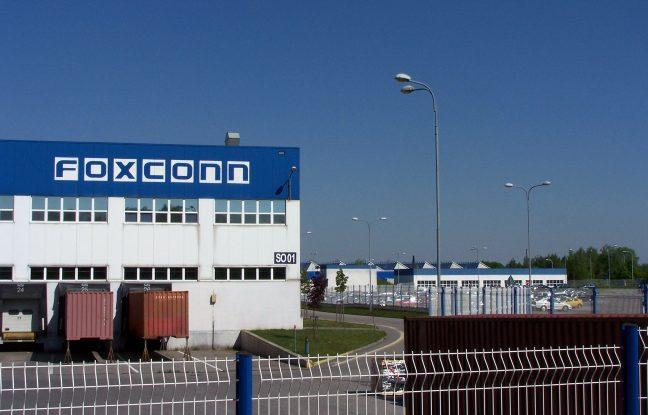Gov. Tony Evers said he wants to renegotiate Wisconsin’s contract with Foxconn Technology Group Wednesday, citing concerns over its environmental impact and how many Wisconsinites the company will actually employ.
Evers told reporters the state was working with the Taiwan-based technology company to possibly revise the original contract struck about a year ago, according to the Associated Press. The contract included a proposed facility to build liquid crystal display panels.
Evers said revisions were needed because the contract “deals with a situation that no longer exists.”
The original contract, negotiated by former Gov. Scott Walker, gave Foxconn over $4 billion in state and local tax credits if it employed at least 13,000 people and invested $10 billion in the state.
The deal was widely criticized by Democrats, including Evers, as being extremely favorable to Foxconn. The cost to the state was also widely criticized.
According to CNN, Mount Pleasant and Racine County, where the plant is to be built, agreed to provide $764 million in incentives. This included buying the land and giving it to Foxconn for free.
Additional costs included the expansion of two lanes on Interstate 94. The total cost of road improvements would reach an estimated $400 million. The state was also seeking an additional $246 million in federal money to help pay for the expansion.
The local electric utility will also have to upgrade its lines and add sub-stations to supply the plant — improvements that will cost $140 million, according to CNN. The cost of those projects will be paid by five million taxpayers in the area.
Foxconn has insisted it will meet the original investment and employment targets. However, as the scope of the project has narrowed, Evers and others have begun questioning the contract.
Last month, Foxconn said it would begin construction later this year on a Generation 6 factory, according to the AP. Foxconn initially planned on building a larger Generation 10 plant that would have produced screens three times as large as the ones to be produced in the Generation 6 factory.
However, Foxconn restated their commitment to their contract this week, according to the Wisconsin State Journal.
“Foxconn remains committed to our contract with the State of Wisconsin,” the company said. “While we continue our weekly engagement with the Evers Administration, especially through the Department of Administration and the Wisconsin Economic Development Corporation, we are open to further consultation, collaboration and new ideas.”
The Journal said that the Gen. 6 factory would likely involve roughly $2 billion in investment, as opposed to the original $10 billion. It would also theoretically require about a fourth of the original 13,000 person workforce.
Foxconn has already fallen short of job creation quotas. In 2018, the company created 178 direct, full-time jobs — short of the minimum 260 full-time jobs required under the contract to qualify for tax incentives.
The contract set a goal of 1,040 jobs created in 2018 to be eligible for a maximum of $9.5 million in job creation credits. The company would be able to claim those credits in future years if it exceeds the jobs target for a later time.
While Foxconn did not qualify for these credits in 2018, it is still eligible for nearly $1.5 billion in job creation credits through the year 2032. If the company creates 2,080 jobs in 2019, it would qualify for a maximum of around $19 million in tax credits.
Evers also mentioned environmental issues as a concern, along with the burden it would impose on taxpayers, when considering the contract.
“It’s our goal to make sure that the taxpayers are protected and environmental standards are protected,” Evers said, according to the AP. “And we believe we need to take a look at that contract and see if it needs to be downsized as a result.”
Making LCD screens requires heavy metals such as mercury, cadmium, chromium, zinc and copper, according to the Chicago Tribune. Foxconn’s reputation in China and corollary data suggests Foxconn may be responsible for heavily polluted waterways and environmental issues in China.
But Senate Majority Leader Scott Fitzgerald, R-Juneau, raised concerns about what reneging on the contract would look like to future potential investors.
“If the state is willing to renege on its commitment to Foxconn and open up a contract without agreement by both parties, then what guarantee can Wisconsin make to any other company that wants to expand here?” Fitzgerald said in a statement.


